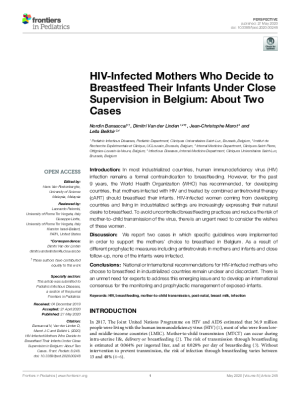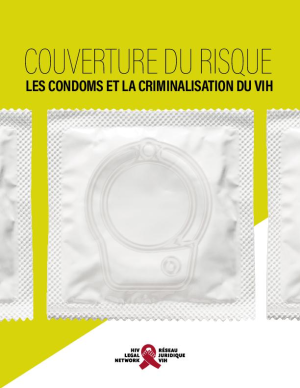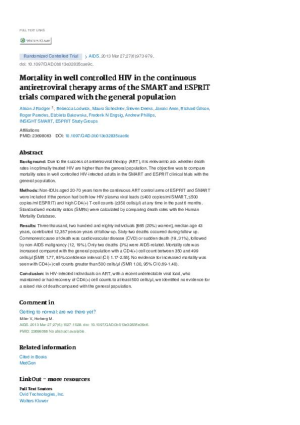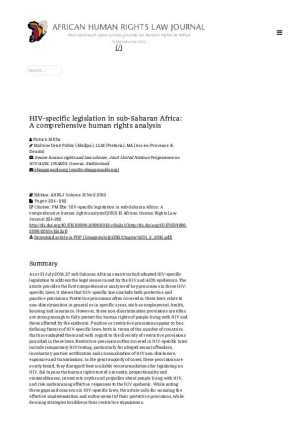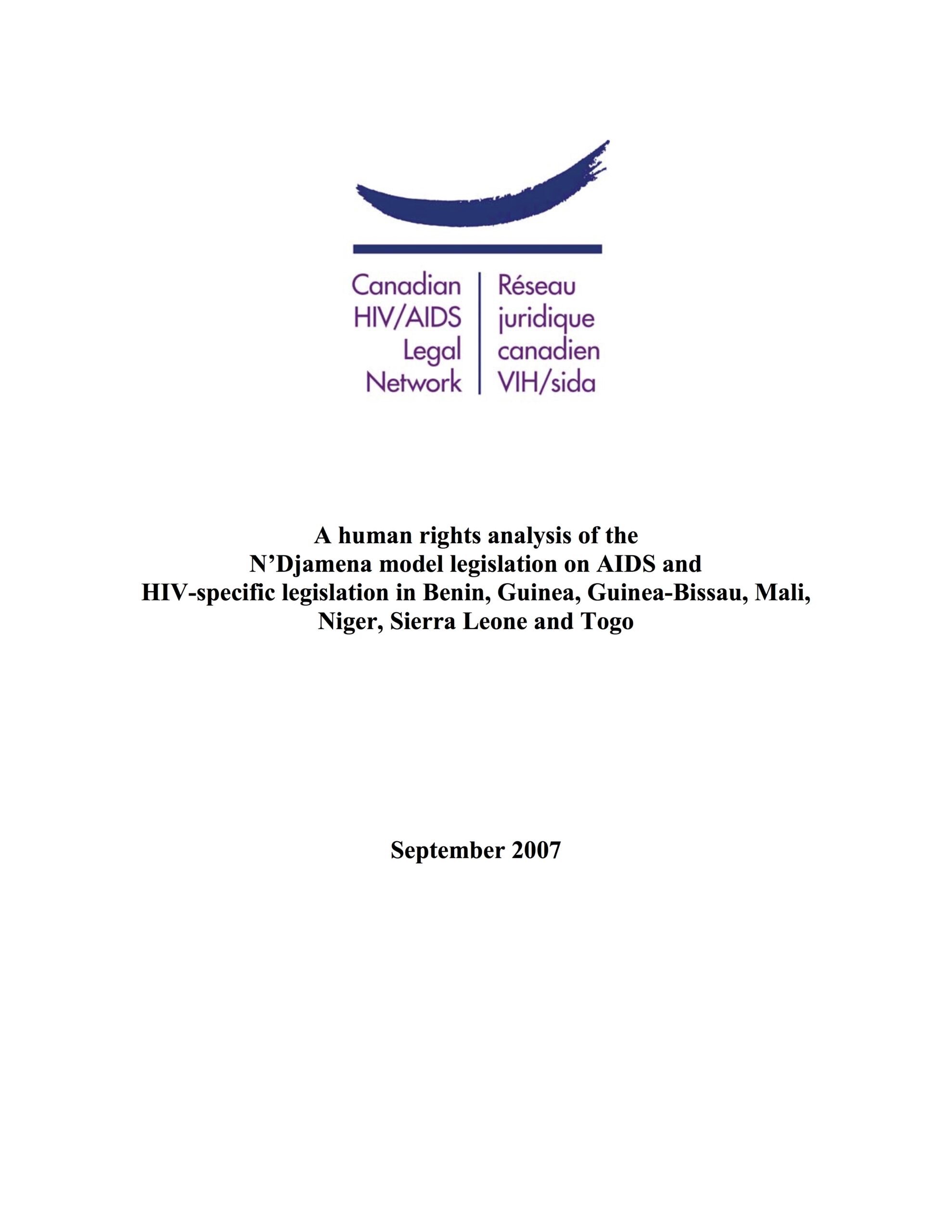Decriminalisation and the end of AIDS: keep the promise, follow the science, and fulfill human rights
A statement from the UNAIDS Reference Group on HIV and Human Rights stating that criminal laws violate a variety of human rights, including the rights to the highest attainable standard of physical and mental health, non-discrimination, privacy, autonomy, dignity, freedom of expression, freedom from arbitrary detention, and ultimately the right to life, among others and calls for States to take proactive measures to end such practices and abolish the underlying criminalisation.
HIV-Infected mothers who decide to breastfeed their infants under close supervision in Belgium: About two cases (2020)
A case report from Belgium in which specific guidelines were implemented in order to support two mothers' choice to breastfeed. As a result of different prophylactic measures including antiretrovirals in mothers and infants and close follow-up, none of the infants were infected.
- Alternative links
- Read on the Frontiers Pediatrics site
Couverture du risque: Les condoms et la criminalisation du VIH
Bien que la possibilité de transmission du VIH soit négligeable ou nulle lorsqu’un condom est utilisé, le droit n’a pas encore tranché la question de savoir si le condom suffit à lui seul à écarter une possibilité réaliste de transmission. Le fait de criminaliser les personnes qui prennent des précautions pour protéger leurs partenaires et qui présentent un risque de transmission nul ou négligeable est injuste et discriminatoire envers les personnes vivant avec le VIH. Cette criminalisation va à l’encontre des preuves scientifiques et des recommandations internationales. Elle est mauvaise pour la santé publique. Les décideur(-euse)s politiques doivent prendre des mesures pour empêcher ces poursuites injustes.
Ontario Manuel de poursuite de la couronne D. 33 Infractions d’ordre sexuel contre les adultes
Lignes directrices pour les procureurs en Ontario, au Canada, sur les poursuites pour infractions d'ordre sexuel contre les adultes. Ces lignes directrices ne sont pas assez protectrices selon les militants canadiens contre la pénalisation du VIH.
Mortality in well controlled HIV in the continuous antiretroviral therapy arms of the SMART and ESPRIT trials compared with the general population
Compares mortality rates in well controlled HIV-infected adults in two clinical trials with the general population. Found that HIV-infected individuals on ART with a recent undetectable viral load, who maintained or had recovery of CD4(+) cell counts to at least 500 cells/μl, had no increased risk of death compared with the general population.
HIV-specific legislation in sub-Saharan Africa: A comprehensive human rights analysis
Analyses key provisions in HIV-specific laws, outlining both protective and punitive provisions including criminalisation of HIV non-disclosure, exposure and transmission. Argues these provisions are generally overly broad, disregarding the best available recommendations for legislating on HIV; failing the human rights test of necessity, proportionality and reasonableness; consecrating myths and prejudice; and undermining HIV responses.
A human rights analysis of the N’Djamena model legislation on AIDS and HIV-specific legislation in Benin, Guinea, Guinea-Bissau, Mali, Niger, Sierra Leone and Togo.
Detailed information and analyses of HIV-specific legislation in seven Central and West African countries from a human rights perspective. Provides commentary on N’Djamena model legislation on HIV/AIDS (2004).

